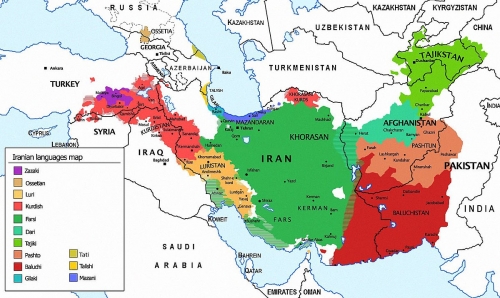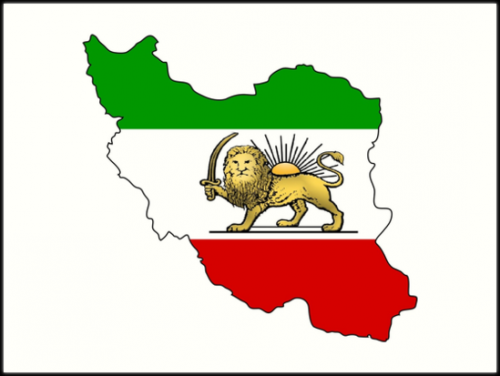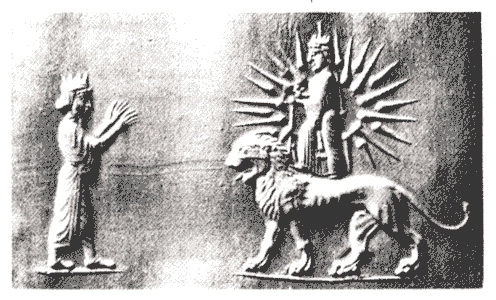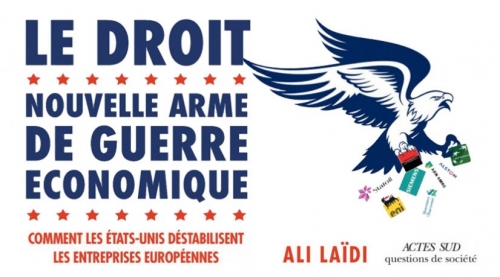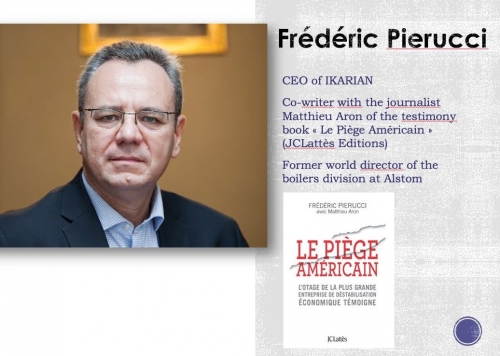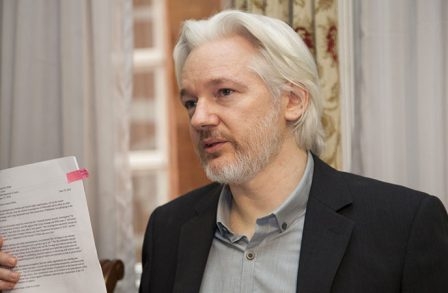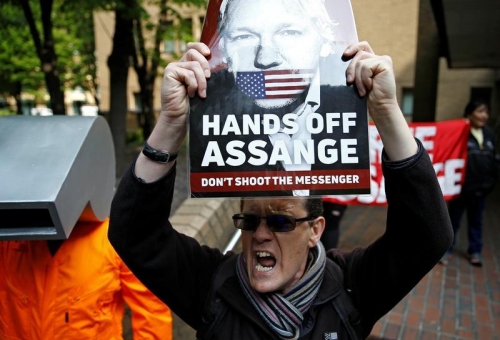AUßENPOLITISCHES
UN-Schätzung
Getreideernte deckt Verbrauch nicht
https://www.tagesschau.de/ausland/getreide-ernte-fao-101....
Neue EU-Regelung
Volle Fahrt in die automobile Totalüberwachung
von Lukas Steinwandter
https://jungefreiheit.de/debatte/kommentar/2019/volle-fah...
Datenschutz
EU beschließt Speicherpflicht für Fingerabdrücke im Ausweis
https://jungefreiheit.de/politik/ausland/2019/eu-beschlie...
EU-Verordnung
Kommen jetzt Uploadfilter gegen digitale Terrorinhalte? Per Verordnung will die EU terroristische Inhalte im Internet eindämmen – mit kurzen Löschfristen und Uploadfiltern. Kritiker warnen vor einer Überregulierung, die vor allem kleinere Anbieter trifft.
https://www.spiegel.de/netzwelt/netzpolitik/so-will-die-e...
Zugriff in der Botschaft
Assange in London festgenommen – ihm drohen fünf Jahre Haft
https://www.welt.de/politik/ausland/article191738013/Juli...
Großbritannien: Gangs erschlichen Milliarden Euro – spendeten für Terroristen
https://www.achgut.com/artikel/grossbrittanien_gangs_ersc..._
Zehn Monate auf Bewährung
Kreta: Zwei deutsche Soldaten wegen Flaggen-Aktion verurteilt
https://jungefreiheit.de/politik/ausland/2019/kreta-zwei-...
Notre-Dame
Sinnbild des Abendlands
von Karlheinz Weißmann
https://jungefreiheit.de/debatte/kommentar/2019/sinnbild-...
Die Katastrophe von Notre Dame
von Martin Lichtmesz
https://sezession.de/61112/die-katastrophe-von-notre-dame
(Zu Notre-Dame)
Osterheld (103) – Adieu vieille Europe
https://sezession.de/61125/osterheld-103-adieu-vieille-eu...
(5-Sterne-General leitet Wiederaufbau)
Wiederaufbau von Notre-Dame : „Er weiß, wie man Leute anbrüllt“
https://www.faz.net/aktuell/gesellschaft/ungluecke/jean-l...
(Kirchenschändungen in Frankreich)
Frankreich
Christus enthauptet, die Kirche geschändet
https://www.welt.de/politik/ausland/plus190739875/Frankre...
Vandalismus in Frankreich : Die Kirche brennt
https://www.faz.net/aktuell/gesellschaft/kriminalitaet/fr...
Protest
Unter Gelbwesten: Eindrücke von einer Bürgerbewegung in Paris von Matthias Moosdorf
https://jungefreiheit.de/debatte/kommentar/2019/unter-gel...
Spanien : Sozialisten gewinnen Wahl – keine eigene Mehrheit in Sicht
https://www.faz.net/aktuell/politik/ausland/wahl-in-spani...
Wahl in Spanien
„Das rechte Projekt ist nur vorerst gescheitert“
https://www.tagesschau.de/ausland/spanien-wahl-interview-...
Österreich
Rechtspopulistische Rohrkrepierer?
Von Martin Sellner
https://sezession.de/61130/rechtspopulistische-rohrkrepie...
Zweiter Weltkrieg
Griechisches Parlament fordert Reparationszahlung von Deutschland
https://jungefreiheit.de/politik/ausland/2019/griechische...
https://www.mdr.de/nachrichten/politik/ausland/griechenla...
(Auch dies ist weiterhin akut)
Polen hält am Thema Reparationszahlungen fest
https://www.mdr.de/heute-im-osten/polen-praezisiert-repar...
Ukraine
Mit Selenskyj in eine ungewisse Zukunft
https://www.deutschlandfunk.de/ukraine-mit-selenskyj-in-e...
Einwandererkarawanen
Grenzschutz: Mexiko zeigt Trump die kalte Schulter
https://jungefreiheit.de/politik/ausland/2019/grenzschutz...
(...wohl doch keine kalte Schulter)
Mexiko: Polizei nimmt Hunderte Migranten fest
https://www.zeit.de/gesellschaft/2019-04/mexiko-migranten...
Mexiko: Über 1.300 Migranten brechen aus Internierungslager aus
https://jungefreiheit.de/politik/ausland/2019/mexiko-uebe...
Maya-Zug auf Yucatán 1525 Kilometer, 15 Haltestellen – und viel Ärger Von den Stränden Cancúns bis zu den Maya-Stätten im Dschungel: Auf einer neuen Bahnstrecke in Mexiko sollen bald drei Millionen Touristen pro Jahr reisen. Das Megaprojekt ist hochumstritten.
http://www.spiegel.de/reise/fernweh/maya-zug-in-yucatan-u...
Maduros krumme Devisendeals
Wie Venezuelas Gold nach Uganda kommt
https://www.spiegel.de/wirtschaft/soziales/gold-und-colta...
Algerien
Militär versus Islamisten
Bouteflika – das Ende einer Ära
https://www.tichyseinblick.de/kolumnen/aus-aller-welt/bou...
Omar al-Baschir: Eine Zäsur für den Sudan
https://www.zeit.de/politik/ausland/2019-04/omar-al-basch...
Berlin Rallye-Legende ausgeraubt
Hilferuf aus Südafrika! Überfall auf Heidi Hetzer (81)
https://www.bz-berlin.de/berlin/charlottenburg-wilmersdor...
Terror am Ostersonntag
Der Tatort ist Sri Lanka, das Ziel ist der Westen
Den Attentätern vom Ostersonntag ging es nicht darum, Sri Lanka zu destabilisieren. Sie wollten mit den Angriffen auf Kirchen und Hotels Wut im Westen schüren – das zeigt nicht nur das IS-Bekennerschreiben.
https://www.spiegel.de/politik/ausland/islamischer-staat-...
Hotel-Chefin in Sri Lanka
„Wir waren ein einfaches Ziel“
https://www.spiegel.de/reise/fernweh/sri-lanka-hotel-chef...
Japan – Auf dem Weg zum liberalen Einwanderungsland?
https://sezession.de/61066/japan-auf-dem-weg-zum-liberale...
Japan
Vom verglasten Palastbalkon: Neuer Tenno grüßt sein Volk
https://de.euronews.com/2019/05/04/vom-verglasten-palastb...
Christchurch – Interview mit Renaud Camus
https://sezession.de/61046/christchurch-interview-mit-ren...

INNENPOLITISCHES / GESELLSCHAFT / VERGANGENHEITSPOLITIK
Berlin
SPD erntet Kritik wegen Redeverbot für Bundeswehr an Schulen
https://jungefreiheit.de/politik/deutschland/2019/spd-ern...
70 Jahre Nato
Pence kritisiert deutsche Verteidigungsausgaben als zu gering
https://jungefreiheit.de/politik/ausland/2019/pence-kriti...
Bundeswehr
Die unsichtbare Armee
von Dieter Stein
https://jungefreiheit.de/debatte/streiflicht/2019/die-uns...
AfD-Anfrage
Afghanistan-Einsatz kostete Deutschland bislang 16 Milliarden Euro
https://jungefreiheit.de/politik/deutschland/2019/afghani...
(Vermutlich ein gut platziertes U-Boot)
Bayerischer AfD-Fraktionsvorsitzender will zur CSU wechseln
https://jungefreiheit.de/politik/deutschland/2019/bayeris...
(Schön, wie sie sich selbst entlarven...)
Wahl zum Bundestagsvizepräsidenten
Die Parlamentsmehrheit erklärt der AfD den Krieg
https://jungefreiheit.de/debatte/kommentar/2019/die-parla...
AfD im Bundestag
Nur nicht provozieren lassen
https://jungefreiheit.de/debatte/kommentar/2019/nur-nicht...
Der AfD-Wahlwerbespot zur Europawahl 2019!
https://www.youtube.com/watch?v=CY4tRdiCQrc
Externe Berater: Auffallend wortkarge Antwort der Dreyer-Landesregierung
https://irisnieland.wordpress.com/2019/04/18/externe-bera...
(“Grüne“ Journalisten hypen Habeck)
Medienliebling
Robert! Habeck! Politgott!
https://jungefreiheit.de/kultur/medien/2019/robert-habeck...
Forderung nach Parteiausschluß
„Rechtspopulistischer Pöbler“: Grüne schießen gegen Palmer
https://jungefreiheit.de/politik/deutschland/2019/rechtsp...
Drei Lektionen
Was die SPD aus der Spanien-Wahl lernen kann
Von Volker Petersen
https://www.n-tv.de/politik/Was-die-SPD-aus-der-Spanien-W...
Sozialismusthesen des Juso-Vorsitzenden
Kevin ist nicht allein zu Haus
von Vera Lengsfeld
https://jungefreiheit.de/debatte/kommentar/2019/kevin-ist...
Sozialismus, identitäre Polizisten und Konstanzer Klimanotstand Kaisers royaler Wochenrückblick
https://jungefreiheit.de/debatte/kommentar/2019/kaisers-r...
(Zu den Protesten gegen Mietwucher)
Wagenknecht, die »soziale Frage« und wir (5)
https://sezession.de/61040/wagenknecht-die-soziale-frage-...
Sozialstaat und Superreiche
Enteignungen sollten möglich bleiben, aber nicht bei Wohnungen
http://www.pi-news.net/2019/04/enteignungen-sollten-moegl...
Daniel Günther
Genosse Günther will kein Linker sein
https://jungefreiheit.de/debatte/kommentar/2019/genosse-g...
Überwachung von Messengerdiensten
Union und SPD: Verfassungsschutz soll Zugriff auf WhatsApp bekommen
https://jungefreiheit.de/politik/deutschland/2019/union-u...
Der Fall Franco A., erster Teil: «Mein Sohn war Staatsfeind Nummer 1»
https://www.nzz.ch/international/der-fall-franco-a-erster...
Der Fall Franco A., zweiter Teil: Plante der deutsche Soldat ein Attentat, oder war er nur ein Hobby-Ermittler?
https://www.nzz.ch/international/fall-franco-a-teil-2-was...
Grütters fordert KZ-Besuchspflicht für Lehrer – um Kinder besser darauf vorzubereiten
https://www.epochtimes.de/politik/deutschland/gruetters-f...
Wegen rechter Wahlplakate
NS-Dokuzentrum gewährt freien Eintritt bis zur Europawahl
https://jungefreiheit.de/kultur/2019/ns-dokuzentrum-gewae...
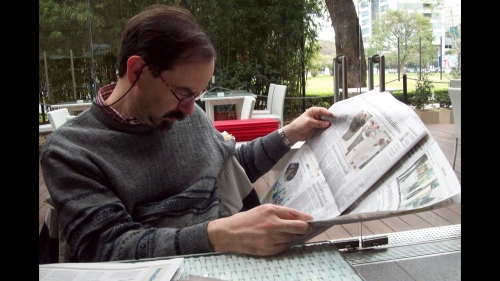
LINKE / KAMPF GEGEN RECHTS / ANTIFASCHISMUS / RECHTE
Das Comeback der Linken
Fleisch vom Fleische
von Claus Wolfschlag
https://jungefreiheit.de/debatte/kommentar/2019/fleisch-v...
Die „Vielen“ wollen vor allem eins: „Kohle“
Frankfurter Kulturinstitutionen dienen sich der etablierten Politik an
http://www.bff-frankfurt.de/artikel/index.php?id=1400
Die Eskalation ist eine Tatsache
Journalistenkanaille gegen die Identitären
von Thorsten Hinz
https://jungefreiheit.de/debatte/kommentar/2019/journalis...
Die Akte Anetta Kahane (1)
https://www.achgut.com/artikel/die_akte_anetta_kahane_1
Die Akte Anetta Kahane (2)
https://www.achgut.com/artikel/die_akte_anetta_kahane_2
Stephanie Heide – Denunzieren mit Steuergeldern
https://www.einprozent.de/blog/recherche/stephanie-heide-...
(Andreas Zick hat mal wieder Geld von der Friedrich-Ebert-Stiftung erhalten) Mitte-Studie Teil I: Wie die SPD ihre verlorenen Wähler rechtextrem schimpft
https://www.tichyseinblick.de/kolumnen/alexander-wallasch...
Friedrich-Ebert-Stiftung
Studie mit linker Schlagseite
https://jungefreiheit.de/debatte/kommentar/2019/studie-mi...
„Verlorene Mitte, feindselige Zustände“
Gabriel attackiert Asyl-Studie von SPD-naher Stiftung
https://jungefreiheit.de/politik/deutschland/2019/gabriel...
Friedrich-Ebert-Stiftung: Die Logik des Anklägers
https://www.achgut.com/artikel/friedrich_ebert_stiftung_d...
Linksextremismus
Hamburger Museum bietet Ex-RAF-Mitglied ein Forum
https://jungefreiheit.de/politik/deutschland/2019/hamburg...
Nach Werbung für #Wirsindmehr-Konzert
Rüffel für Steinmeier
von Felix Krautkrämer
https://jungefreiheit.de/politik/deutschland/2019/rueffel...
Frei.Wild in Flensburg
Kunst darf alles – außer rechts sein
https://jungefreiheit.de/debatte/kommentar/2019/kunst-dar...
Bildung einer kriminellen Vereinigung
Staatsanwaltschaft ermittelt gegen „Zentrum für politische Schönheit“
https://jungefreiheit.de/politik/deutschland/2019/staatsa...
(Wie nicht anders zu erwarten)
Ermittlungen gegen „Zentrum für politische Schönheit“ eingestellt
https://jungefreiheit.de/politik/deutschland/2019/ermittl...
(Wie ebenfalls nicht anders zu erwarten)
Offener Brief kritisiert Ermittlungen
Künstler und Politiker solidarisieren sich mit „Zentrum für politische Schönheit“
https://jungefreiheit.de/politik/deutschland/2019/kuenstl...
Bombendrohung und andere Märchen
Hamburg: Das Antifa-„Kunstprojekt“ der Ida Ehre-Schule
http://www.pi-news.net/2019/04/hamburg-das-antifa-kunstpr...
(Zur Verrohung der linken Sprache)
Die Widerlichkeit Martin Sellners
https://www.youtube.com/watch?v=tqPrbvBQuLs&feature=e...
Österreich
Bundeskanzler Sebastian Kurz bezeichnet Heimatliebe als Gefahr für unser Land
https://www.unzensuriert.at/content/0029362-Bundeskanzler...
Dem Sprecher der Identitären Bewegung Österreichs wird massiv Unrecht zugefügt Solidarität mit Martin Sellner gegen linke Diffamierungs-Kampagne
http://www.pi-news.net/2019/04/solidaritaet-mit-martin-se...
Alle gegen Sellner
von Martin Lichtmesz
https://sezession.de/61015/alle-gegen-sellner
Identitäre Bewegung
Die geächteten Aktivisten
von Dieter Stein
https://jungefreiheit.de/debatte/streiflicht/2019/die-gea...
Bettina Gruber: Da Capo: SEIFENOPER »RECHTSEXTREMISMUS« – Zur Dämonisierung der Identitären
https://www.tumult-magazine.net/blog/bettina-gruber-da-ca...
Sellner sieht Bedrohung durch „tiefen linken Staat“ Identitäre demonstrieren vor Wiener Justizministerium
https://jungefreiheit.de/politik/ausland/2019/identitaere...
Hakenkreuz & Synagoge – 13 Jahre später in Baden Martin Sellner
https://www.youtube.com/watch?v=NK-9hW6BP3c
ServusTV, oder: mit Kubitschek reden
https://sezession.de/61023/servustv-oder-mit-kubitschek-r...
Bei „Anti-Rechts“-Demo entdeckt
Identitären-Aufkleber in Mannschaftswagen: Razzia in Polizeipräsidium
https://jungefreiheit.de/politik/deutschland/2019/identit...
(Vera Lengsfeld denunziert)
Deutschland im April 2019
https://www.achgut.com/artikel/deutschland_im_april_2019
Schmierereien
Verein Pro Leipzig sieht seine Arbeit diffamiert
„Pro Nazi e.V.“ – das haben Unbekannte auf das Büroschild von Pro Leipzig geschmiert. Der Verein, der Bücher zur Entwicklung und Historie Leipzigs publiziert, wehrt sich gegen unhaltbare Vorwürfe und sieht sich diffamiert.
http://www.lvz.de/Leipzig/Lokales/Verein-Pro-Leipzig-sieh...
Innenminister Herrmann
Bayern entläßt Polizisten wegen Reichsbürger-Ansichten
https://jungefreiheit.de/politik/deutschland/2019/bayern-...
(“Dem religiösem wie dem rechten Extremismus vorzubeugen...“ Von „Linksextremismus“ ist bezeichnenderweise bei diesem mit Bundesmitteln finanzierten Projekt keine Rede...)
Verein Creative Change
Projekt „Demokratieboten“: Spielerisch deeskalieren
https://www.op-online.de/offenbach/offenbach-hessen-proje...
Europawahl: ZDF muss NPD-Werbespot nicht ausstrahlen
https://www.zeit.de/politik/deutschland/2019-04/europawah...
SWR sendet keine NPD-Wahlwerbung zur Europawahl
https://www.swr.de/swraktuell/Europawahl-2019-SWR-sendet-...
(...dafür produziert der SWR einen Agitationsfilm...) Demnächst: Der Kinofilm Kleine Germanen
https://sezession.de/61047/demnaechst-der-kinofilm-kleine...
Europawahl
Katholikenpräsident warnt vor Votum für AfD
https://jungefreiheit.de/politik/deutschland/2019/katholi...
Wahlkampf in Köln
Linksradikale protestieren teils gewaltsam gegen AfD-Veranstaltung
https://jungefreiheit.de/politik/deutschland/2019/linksra...
(Mit Video)
Kampf gegen die AfD
Moralisch angepaßte Demokratie in Köln-Kalk
https://jungefreiheit.de/debatte/kommentar/2019/moralisch...
(Etwas anderes war nicht erwartet worden...)
Frankfurt
Keine weiteren Ermittlungen gegen Audimax-Besetzer
https://www.welt.de/regionales/hessen/article191966553/Ke...
Essen
Mehrere AfD-Autos angezündet
https://jungefreiheit.de/politik/deutschland/2019/mehrere...

EINWANDERUNG / MULTIKULTURELLE GESELLSCHAFT
„Marsch gen Norden“
Griechenland: Hunderte Einwanderer wollen gewaltsam nach Mitteleuropa
https://jungefreiheit.de/politik/ausland/2019/griechenlan...
(Er kann sie alle in den Vatikanstaat einreisen lassen...) „Ihr seid keine Außenseiter“: Papst fordert legale Wege für Migranten
https://www.gmx.net/magazine/politik/aussenseiter-papst-l...
Illegale Einwanderung
Starker Anstieg von Asylanträgen aus Nigeria
https://jungefreiheit.de/politik/deutschland/2019/starker...
EU-Wahlprogramm
Linke: Flüchtlinge sollen sich Aufnahmeland selbst aussuchen dürfen
https://jungefreiheit.de/allgemein/2019/linke-fluechtling...
Grüne EU-Politikerin
Keller fordert Flüchtlings-Umverteilung auch ohne Ungarn
https://jungefreiheit.de/politik/deutschland/2019/keller-...
Asylzahlen
Einmal Halberstadt eingewandert
https://jungefreiheit.de/politik/deutschland/2019/einmal-...
Lew-Kopelew-Preis
Lifeline-Kapitän Reisch erhält Auszeichnung
https://jungefreiheit.de/politik/deutschland/2019/lifelin...
(Kapitän Abujella Abdul-Bari, lybische Küstenwache) Sonntagsheld (104) – Der Traumzerplatzer
https://sezession.de/61136/sonntagsheld-104-der-traumzerp...
„Initiative an der Basis“
Aufnahmestopp: Flüchtlingshelfer fordern veränderte Asylpolitik
https://jungefreiheit.de/politik/deutschland/2019/aufnahm...
Trotz verbesserter Sicherheitslage
Nur ganz wenigen Flüchtlingen wird der Schutzstatus wieder entzogen
https://jungefreiheit.de/politik/deutschland/2019/nur-gan...
Gescheiterte Abschiebungen
Dublin-System: Griechenland lehnt fast alle deutschen Gesuche ab
https://jungefreiheit.de/politik/deutschland/2019/dublin-...
Schweden
Urteil gegen Flüchtlingshelferin wird aufgehoben
https://jungefreiheit.de/politik/ausland/2019/urteil-gege...
Berlin
Identitäre fordern Syrer mit Plakaten zur Rückkehr in Heimat auf
https://jungefreiheit.de/politik/deutschland/2019/identit... https://www.morgenpost.de/berlin/article217030495/Der-Kri...
https://www.welt.de/vermischtes/article192465001/Berlin-R... https://www.bz-berlin.de/berlin/hetz-aktion-in-berlin-wil...
Österreich
Gegen den Bevölkerungsaustausch! - Strache bleibt Stabil
https://www.youtube.com/watch?v=pb6_GEDpt50&t=
Mainz
Gericht bestätigt Schließung von islamischer Kita
https://jungefreiheit.de/politik/deutschland/2019/gericht...
Ludwigsburg
Wahnsinn auf der Autobahn: Türkische Hochzeit blockiert komplette Fahrbahn
https://www.tag24.de/nachrichten/ludwigsburg-stuttgart-zu...
Hamburger
Türkischer Hochzeitskorso hält mitten auf Autobahn-Brücke
https://www.tag24.de/nachrichten/hochzeits-korso-konvoi-g...
Straßenblockaden und illegale Rennen
Lebensgefährliche Hochzeitsunsitten
https://jungefreiheit.de/debatte/kommentar/2019/lebensgef...
Schreckschußwaffen und blockierte Autobahnen
Dutzende Einsätze: Hochzeitskorsos halten Polizei auf Trab
https://jungefreiheit.de/kultur/gesellschaft/2019/dutzend...
1 Woche Mekka für 1400 Euro, „Beratung“ durch Salafisten inklusive
https://www.cicero.de/innenpolitik/salafismus-verfassungs...
Mordvorwurf gegen Jennifer W.
In der Sonne angekettet bei 45 Grad
https://www.spiegel.de/panorama/justiz/muenchen-liess-jen...
Extremismus
Razzia: Polizei gelingt Schlag gegen Hamas in Offenbach – Ex-Eintracht-Star unterstützt radikales Netzwerk
https://www.op-online.de/offenbach/offenbach-wiesbaden-he...
Deutsche Dschihadisten
Mutmaßliches IS-Mitglied in Hamburg festgenommen
https://www.spiegel.de/politik/deutschland/islamischer-st...
Kriminelle Clans: „Seit über 20 Jahren die Augen verschlossen“ – Kriminalbeamte fordern jetzt diese harten Maßnahmen
https://www.derwesten.de/region/kriminelle-clans-das-ford...
Ruhrgebiet
Libanesen-Clans bedrohen Migrationsforscher
https://jungefreiheit.de/politik/deutschland/2019/libanes...
Michael ist nicht der häufigste Name des Täters – sondern Mohamed
https://www.youtube.com/watch?v=BhvelQe_84A
Messer-Prozeß von Chemnitz
Schuld ohne Sühne
von Thorsten Hinz
https://jungefreiheit.de/debatte/kommentar/2019/schuld-oh...
33-Jährigem auf offener Straße die Kehle durchgeschnitten Turin: Marokkaner tötet Italiener, „weil er glücklich aussah“
http://www.pi-news.net/2019/04/turin-marokkaner-toetet-it...
Rüsselsheimer Innenstadt
Neun Mitglieder einer Großfamilie nach Schüssen festgenommen
https://www.welt.de/vermischtes/article192543689/Schuesse...
Fahndungserfolg
Freiburger Vergewaltigung: Ermittler fassen zwölften Verdächtigen
https://jungefreiheit.de/politik/deutschland/2019/freibur...
Schweizer Touristin in Wien
Frau bricht Grapscher die Nase: Verfahren eingestellt
https://jungefreiheit.de/politik/ausland/2019/frau-bricht...
Frankfurt
Zeugen gesucht
Frau in Bockenheim belästigt – Polizei sucht Täter mit Foto
https://www.op-online.de/region/frankfurt/frankfurt-hesse...
Festnahmen in Bocholt : Mob aus hunderten Menschen umringt Polizei – Beamte setzen Schlagstöcke ein
https://rp-online.de/nrw/panorama/bocholt-gruppe-aus-hund...
(Ebenfalls Bocholt...)
Tumult in Bocholter Krankenhaus
„Ihr Nazis!“: Patient randaliert in Notaufnahme und beschimpft Personal
https://www.msl24.de/muensterland/bocholt-ort847855/bocho...
Sachsen-Anhalt
Syrer verletzt zwei Passanten schwer: Polizei verharmlost Tat
https://jungefreiheit.de/politik/deutschland/2019/syrer-v...

KULTUR / UMWELT / ZEITGEIST / SONSTIGES
Berlin-Treptow
Bronzeskulptur gestohlen: Kunst-Dieb zu Geldstrafe verurteilt Eine Bronzeskulptur aus Treptow wurde gestohlen, zersägt und anschließend als Schrott verkauft – kein Einzelfall in Berlin.
https://www.tagesspiegel.de/berlin/berlin-treptow-bronzes...
Wolffsohn: „Bilder von Emil Nolde sind großartig“ Merkel lässt Gemälde von Emil Nolde im Kanzleramt abhängen
http://www.pi-news.net/2019/04/merkel-laesst-gemaelde-von...
Historiker zu antisemitischem Künstler
„Auf jeden Fall sind Nolde-Bilder zeigbar“
https://www.deutschlandfunk.de/historiker-zu-antisemitisc...
Das Hakenkreuz-Haus von Dresden
Arbeiten an einem Einfamilienhaus im Stadtteil Dresden-Zschieren legten auf der Fassade verborgenen Führerkult frei.
https://www.saechsische.de/das-hakenkreuz-haus-von-dresde...
Geburtenregister
Neuer Geschlechtseintrag „divers“ wird kaum beantragt
https://jungefreiheit.de/politik/deutschland/2019/neuer-g...
Petition für Gendersprache bei Online-Enzyklopädie Schriftstellerin Hannig will Wikipedia geschlechtergerecht machen
https://jungefreiheit.de/kultur/2019/schriftstellerin-han...
Minderheitenregelungen
Britische Zeitung verlangt ethnische und sexuelle Vielfalt im Fußball
https://jungefreiheit.de/kultur/gesellschaft/2019/britisc...
Vielfalt im Fußball
Der rosarote Kicker
https://jungefreiheit.de/debatte/kommentar/2019/der-rosar...
AfD-Anfrage
Geldsegen für Sexismuswächter und Mihigru-Journalisten
https://jungefreiheit.de/politik/deutschland/2019/geldseg...
„Stürmer“-Vergleich
Deutsche Redaktionssoldaten formieren sich hinter ORF-Mann
https://jungefreiheit.de/debatte/kommentar/2019/deutsche-...
Soziale Netzwerke
Facebook sperrt rechte Blogger-Accounts
https://jungefreiheit.de/kultur/medien/2019/facebook-sper...
(Mehr linke Propaganda im Kino...)
Filmakademie-Präsident Matthes
Wegen Rechtspopulismus: Deutsche Filme sollen politischer werden
https://jungefreiheit.de/kultur/2019/wegen-rechtspopulism...
Petition
Mehr Vielfalt für Wikipedia
https://jungefreiheit.de/debatte/kommentar/2019/mehr-viel...
EU-Staaten stimmen mit Ja
Neues Urheberrecht endgültig beschlossen
https://www.tagesschau.de/ausland/urheberrecht-eu-101.html
(Küchenpsychologie eines Herbert Renz-Polster)
„Erziehung trägt Gesinnung“
Beschädigte Kindheit ist gleich rechtspopulistischer Erwachsener?
https://jungefreiheit.de/debatte/kommentar/2019/beschaedi...
Schülerin Greta Thunberg mit Goldener Kamera geehrt
https://www.gmx.net/magazine/unterhaltung/stars/schauspie...
(Greta Thunberg)
Die Domina der Klimarettung
https://www.achgut.com/artikel/die_domina_der_klimarettung
Vor Audienz bei Papst
Katholische Bischöfe outen sich als Greta-Fans
https://jungefreiheit.de/kultur/gesellschaft/2019/katholi...
TV-Kritik zu „Anne Will“
Generation Greta: panisch, verängstigt, grün
von Boris T. Kaiser
https://jungefreiheit.de/kultur/medien/2019/generation-gr...
Hohe Schulden
Verein für Deutsche Kulturbeziehungen im Ausland insolvent
https://jungefreiheit.de/kultur/2019/verein-fuer-deutsche...
Silvesterfeiern
Berliner Grüne fordern Verbot von privaten Feuerwerken https://jungefreiheit.de/politik/deutschland/2019/berline...
Grüne wollen Verbot des Verbrennungsmotors ab 2030 – Breite Kritik „Der Ausstieg aus dem Verbrennungsmotor muss gesetzlich festgelegt werden“, heißt es in einem Thesenpapier des Grünen-Fraktionschefs
https://www.nw.de/nachrichten/umwelt/22425294_Gruene-woll...
Soziale Medien
Boris Palmer attackiert Deutsche Bahn wegen Multikulti-Werbung
https://jungefreiheit.de/politik/deutschland/2019/boris-p...
(Wichtigtuer sucht Aufmerksamkeit...)
Schmähgedicht-Affäre Böhmermann zieht gegen Merkel vor Gericht TV-Satiriker Jan Böhmermann verhöhnte den türkischen Präsidenten Erdogan, Bundeskanzlerin Merkel nannte das „bewusst verletzend“. Ob sie das durfte, entscheidet nun das Berliner Verwaltungsgericht.
http://www.spiegel.de/kultur/gesellschaft/jan-boehmermann...
Niall Ferguson über die Kultur an Unis: «Als Rechter bist du ein potenzieller Nazi. Kommunisten hingegen sind moralisch einwandfreie Sozialdemokraten»
Er zählt zu den wichtigsten Historikern der Gegenwart. Im grossen Gespräch rechnet Niall Ferguson mit dem Wohlfühldenken vieler Kollegen ab: Er legt offen, wie die Linke die angelsächsischen Universitäten gekapert hat. Und wie jene, die ständig von Inklusion sprechen, Andersdenkende konsequent exkludieren.
https://www.nzz.ch/feuilleton/niall-ferguson-als-rechter-...
Politische Korrektheit
Hochschulverband beklagt Einschränkung der Meinungsfreiheit
https://jungefreiheit.de/politik/deutschland/2019/hochsch...
Man darf George Soros kritisieren
https://www.achgut.com/artikel/man_darf_george_soros_krit...
Afrika hat Besseres verdient als den Opferstatus
https://www.achgut.com/artikel/afrika_hat_besseres_verdie...
Wir brauchen einen schwarzen Papst!
Von Martin Sellner
https://www.youtube.com/watch?v=xG0IoiJ8dwA
Writing Europeans Out of Their Own History
https://www.youtube.com/watch?v=fSBx0pqTSL0
Durs Grünbein – Im „Labyrinth der Unheilsgeschichte“ https://sezession.de/61005/durs-gruenbein-im-labyrinth-de...
Mal schauen, was er macht
von Götz Kubitschek
https://sezession.de/61126/mal-schauen-was-er-macht
Mit Kopftuch im Hirn: „Islamische Mode“ in Frankfurt Wie Frauendiskriminierung „attraktiv“ gemacht wird
http://www.bff-frankfurt.de/artikel/index.php?id=1399
Beleidigt, Angebrüllt, Bespuckt
Gewalt und Bedrohung: Schaffner werden immer öfter angegriffen
https://www.fnp.de/frankfurt/frankfurt-hessen-deutsche-ba...
50 Tonnen CO2 + 40.000 km: Claudia Roth jettet & rettet das Weltklima!
http://www.pi-news.net/2019/04/50-tonnen-co2-40-000-km-cl...
CO2-Steuer
Die größte Steuererhöhung des Jahrhunderts
https://www.achgut.com/artikel/die_groesste_steuererhoehu...
Jetzt kommt bald die Greta-Steuer!
Überraschen kann das nun wirklich niemand
http://www.bff-frankfurt.de/artikel/index.php?id=1406
Plastikflut in den Meeren
Ökologie ist konservativ
von Dieter Stein
https://jungefreiheit.de/debatte/kommentar/2019/oekologie...
Rekordzahlen mit kleinem Makel
Gewinne von Amazon gehen durch die Decke
https://www.onlinehaendler-news.de/online-handel/marktpla...
Deutsche Post: Immer weniger Briefkästen, dafür längere Laufzeiten und mehr Beschwerden
https://www.logistik-watchblog.de/unternehmen/1993-deutsc... https://www.merkur.de/wirtschaft/post-betreibt-immer-weni...
Englische Supermarktkette entschuldigt sich für rassistische Schoko-Enten
https://jungefreiheit.de/politik/ausland/2019/englische-s...
(Weiße sind an allem schuld...)
Studie
Weiße Amerikaner tragen überproportional zum Klimawandel bei
https://jungefreiheit.de/politik/ausland/2019/weisse-amer...
Junge Einwanderer
Kampfansage an die Kartoffelkultur
von Thorsten Hinz
https://jungefreiheit.de/kultur/2019/kampfansage-an-die-k...
Dom und Kathedrale
Ein Königsberger Fundstück
von Thorsten Hinz
https://jungefreiheit.de/kultur/2019/ein-koenigsberger-fu...
(Zum Rammstein-Video...)
Sonntagsheld (101) – Die Sex-Pistols haben angerufen…
https://sezession.de/60999/sonntagsheld-101-die-sex-pisto...
Schwedische Metal-Band
Schrecken der Meere: Sabaton ehrt Kriegsschiff Bismarck
https://jungefreiheit.de/kultur/2019/sabaton-ehrt-kriegss...
Steiermark
SPÖ untersagt Cover-Band das Spielen von Gabalier-Liedern
https://jungefreiheit.de/politik/ausland/2019/spoe-unters...
 Vanaf de openingspagina is duidelijk welke auteur voor Mel Bontje een grote inspirator is. Seks in een boek is één ding, maar waarom toch die fascinatie met zelfbevlekking? Een ander feit dat in het oog springt is dat de auteur doorklinkt in de gesprekken. Hij laat zich kennen in zowel zijn fascinatie met aftandsheid en verval, als in zijn erudiete woordkeuzes om sociale analyses uit te drukken. Dit rijmt niet overal met de personages: het zijn deftige zinnen waarmee de jonge geest absoluut en doordringend oordeelt over de werkelijkheid.
Vanaf de openingspagina is duidelijk welke auteur voor Mel Bontje een grote inspirator is. Seks in een boek is één ding, maar waarom toch die fascinatie met zelfbevlekking? Een ander feit dat in het oog springt is dat de auteur doorklinkt in de gesprekken. Hij laat zich kennen in zowel zijn fascinatie met aftandsheid en verval, als in zijn erudiete woordkeuzes om sociale analyses uit te drukken. Dit rijmt niet overal met de personages: het zijn deftige zinnen waarmee de jonge geest absoluut en doordringend oordeelt over de werkelijkheid.




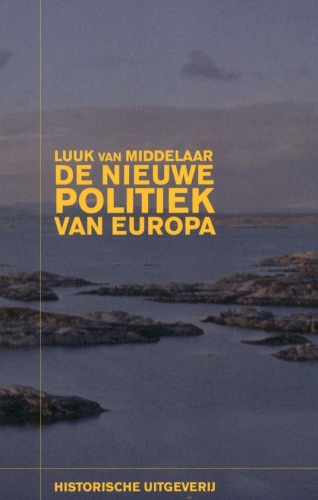 Depuis la crise financière de 2008, selon Luuk van Middelaar, l'Union Européenne a perdu sa boussole dans la bourrasque et les vents de la "politique de l’événement". Elle se révèle incapable de navigation et de stratégie et se prive d'esprit de système et d'avenir.
Depuis la crise financière de 2008, selon Luuk van Middelaar, l'Union Européenne a perdu sa boussole dans la bourrasque et les vents de la "politique de l’événement". Elle se révèle incapable de navigation et de stratégie et se prive d'esprit de système et d'avenir.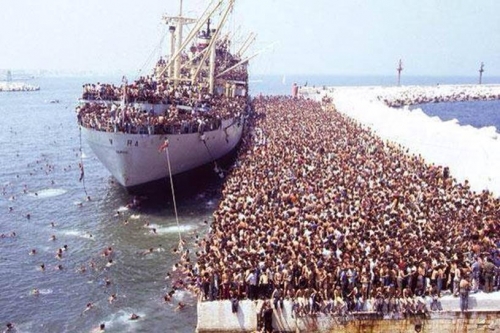
 La démocratie, les oppositions et les blâmes
La démocratie, les oppositions et les blâmes

 del.icio.us
del.icio.us
 Digg
Digg


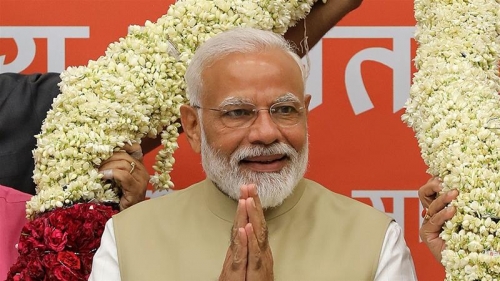
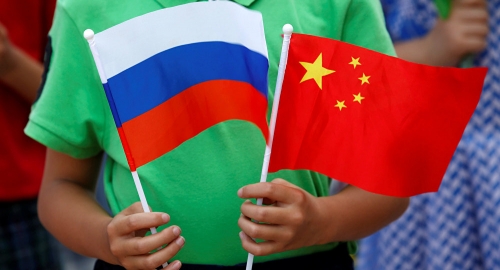





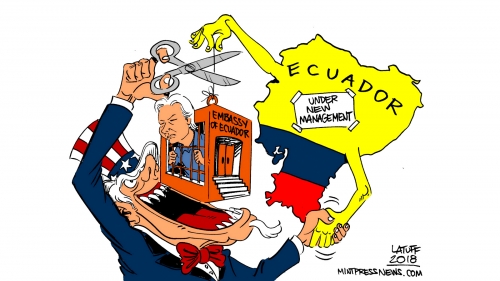
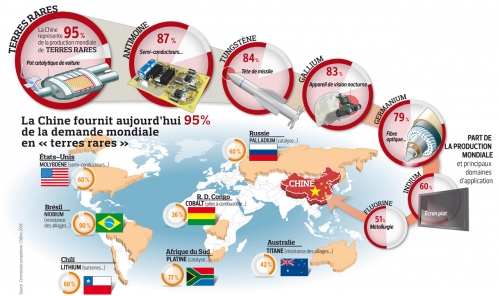
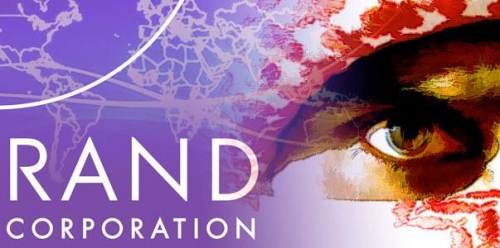




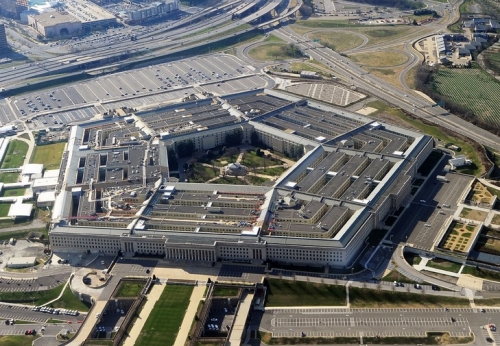



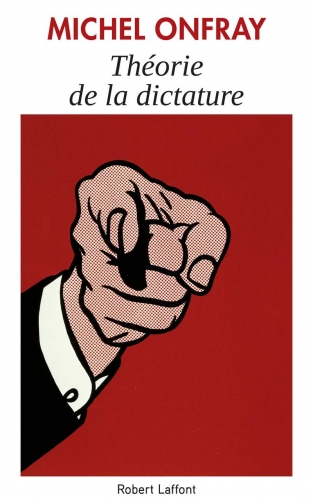
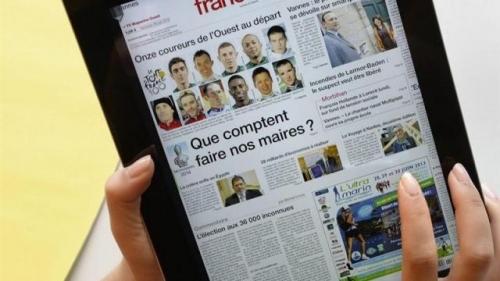


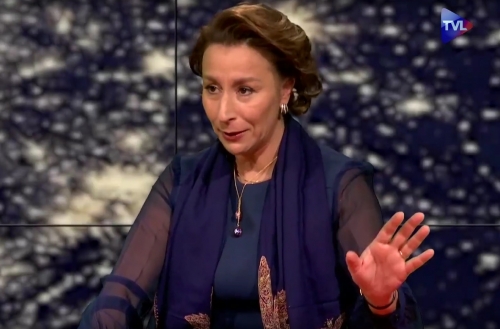
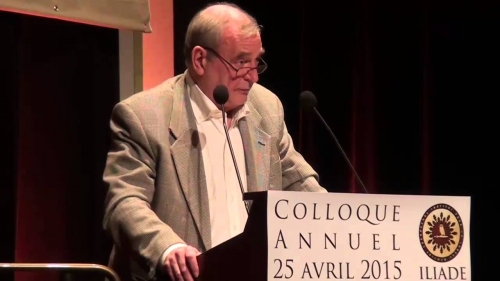
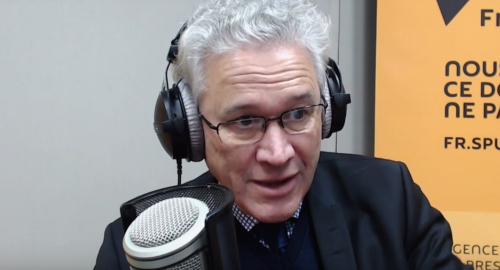
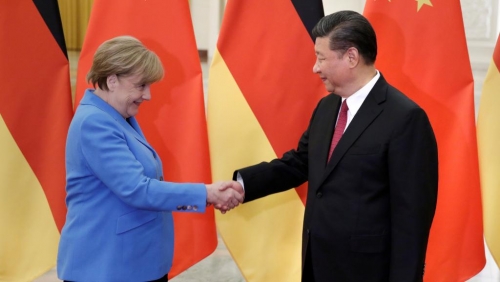
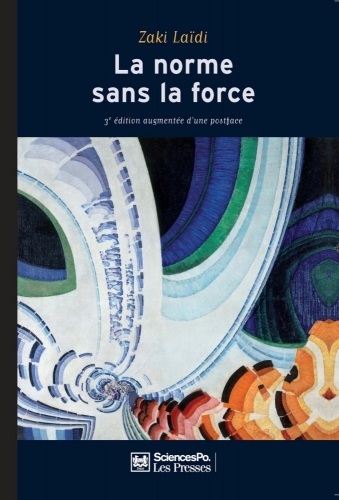 Faut-il le rappeler, comme le Conseil de l’Europe en 1949, l’Union européenne s’est construite sur le mantra de la paix par le droit (celui qui avait si bien fonctionné à l’époque de la SDN…) ! Par sa force intrinsèque et quasi-divine, la norme est censée résoudre tous les problèmes de l’Europe de l’après Seconde Guerre mondiale, de la Guerre froide, de l’après-Guerre froide et de la nouvelle Guerre froide. Ni plus, ni moins La construction européenne – du traité de Rome au traité de Lisbonne – s’est reposée sur d’énormes conventions internationales que seuls quelques initiés – dont ni vous, ni moi ne sommes – parviennent à comprendre et à interpréter. À Bruxelles, les hommes forts (les fortes femmes) de la Commission et du Conseil sont les juristes. Ils pondent en permanence de nouvelles normes et traquent l’État délinquant soit celui qui ne respecte pas les valeurs du machin (Hongrie, Pologne, Roumanie), soit celui qui viole les sacro-saintes règles budgétaires (Grèce, Italie, voire France)
Faut-il le rappeler, comme le Conseil de l’Europe en 1949, l’Union européenne s’est construite sur le mantra de la paix par le droit (celui qui avait si bien fonctionné à l’époque de la SDN…) ! Par sa force intrinsèque et quasi-divine, la norme est censée résoudre tous les problèmes de l’Europe de l’après Seconde Guerre mondiale, de la Guerre froide, de l’après-Guerre froide et de la nouvelle Guerre froide. Ni plus, ni moins La construction européenne – du traité de Rome au traité de Lisbonne – s’est reposée sur d’énormes conventions internationales que seuls quelques initiés – dont ni vous, ni moi ne sommes – parviennent à comprendre et à interpréter. À Bruxelles, les hommes forts (les fortes femmes) de la Commission et du Conseil sont les juristes. Ils pondent en permanence de nouvelles normes et traquent l’État délinquant soit celui qui ne respecte pas les valeurs du machin (Hongrie, Pologne, Roumanie), soit celui qui viole les sacro-saintes règles budgétaires (Grèce, Italie, voire France)
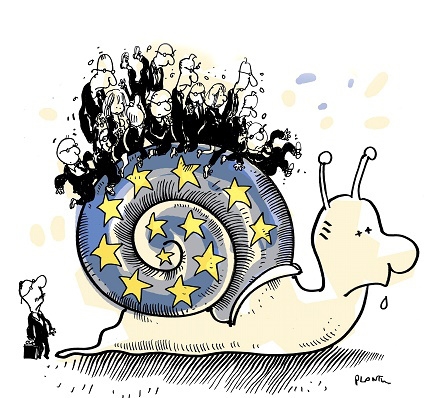
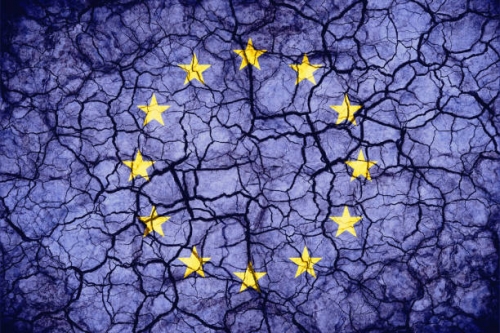
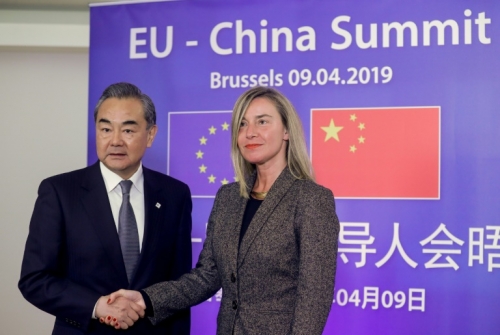
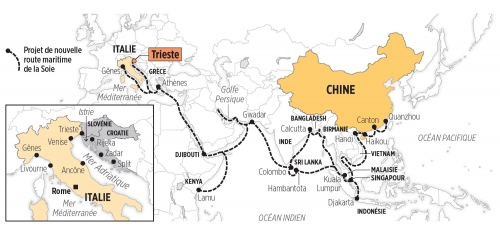


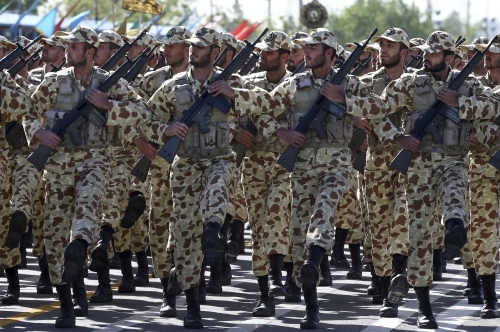
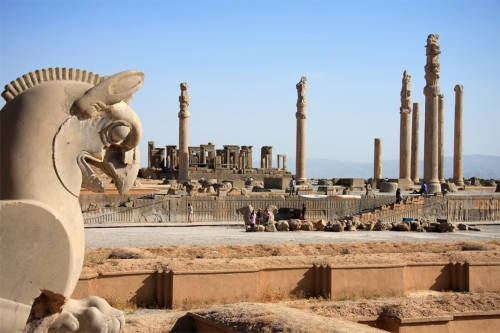
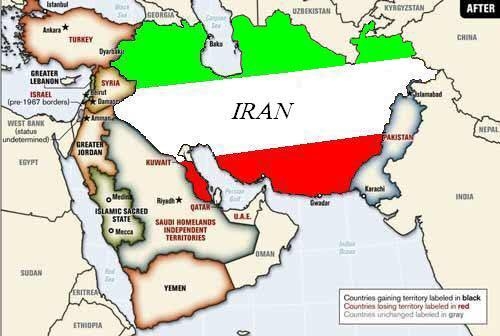
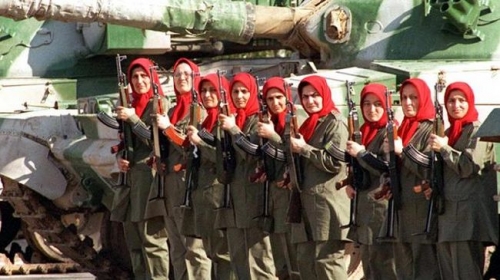

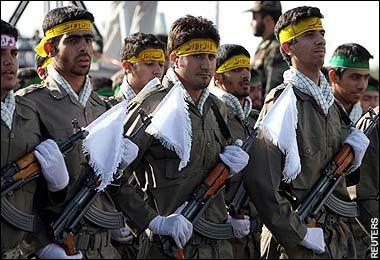
 Il y a encore en Iran aujourd’hui des religieux supposément chiites qui doivent plus à Sohrawardi, à travers Mullah Sadra, qu’à l’enseignement réel de l’Imam Ali. A l’époque du Sixième Imam, Jaafar al-Sadiq, la foi chiite fut cooptée par les partisans iraniens luttant contre me Califat sunnite. Le genre de doctrine chiite que certains des collègues de l’Ayatollah Khomeiny tentèrent d’imposer à l’Iran en 1979 représenta une reconstruction radicale du premier chiisme arabe, pas le genre d’ésotérisme chiite qui donna naissance à la dynastie safavide. Cette dernière permit à l’Iran de resurgir en tant qu’Etat politique distinct séparé et opposé au Califat Ottoman sunnite et à un Empire Moghol qui était aussi tombé dans le fondamentalisme islamique après que la littérature et la philosophie persisées d’Akbar se soient révélées être un rempart insuffisant contre celui-ci. Certains de ces chiites persisés sont présents aux plus hauts niveaux dans la structure de pouvoir de la République Islamique. Ils doivent être accueillis dans la communauté du nationalisme iranien, et même dans la communauté de la Renaissance Iranienne.
Il y a encore en Iran aujourd’hui des religieux supposément chiites qui doivent plus à Sohrawardi, à travers Mullah Sadra, qu’à l’enseignement réel de l’Imam Ali. A l’époque du Sixième Imam, Jaafar al-Sadiq, la foi chiite fut cooptée par les partisans iraniens luttant contre me Califat sunnite. Le genre de doctrine chiite que certains des collègues de l’Ayatollah Khomeiny tentèrent d’imposer à l’Iran en 1979 représenta une reconstruction radicale du premier chiisme arabe, pas le genre d’ésotérisme chiite qui donna naissance à la dynastie safavide. Cette dernière permit à l’Iran de resurgir en tant qu’Etat politique distinct séparé et opposé au Califat Ottoman sunnite et à un Empire Moghol qui était aussi tombé dans le fondamentalisme islamique après que la littérature et la philosophie persisées d’Akbar se soient révélées être un rempart insuffisant contre celui-ci. Certains de ces chiites persisés sont présents aux plus hauts niveaux dans la structure de pouvoir de la République Islamique. Ils doivent être accueillis dans la communauté du nationalisme iranien, et même dans la communauté de la Renaissance Iranienne.